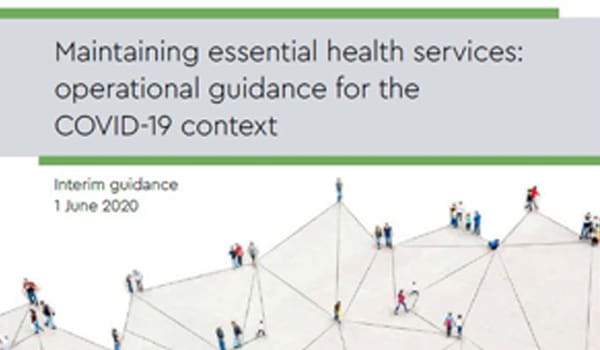
Maintaining Essential Health Services: operational guidance for the Covid-19 context 1 June 2020
This update of the guidance from the end of March 2020, has two main parts: (1) Operational strategies for maintaining essential health services, and (2) Life course and disease considerations.
In the second part, there is a sub-section covering maternal and newborn health, child and adolescent health, older people, and sexual and reproductive health services, including on page 29, guidance on safe abortion care and post-abortion care, which reads as follows:
- Consider reducing barriers that could delay care and therefore increase risk for adolescents, rape survivors and others particularly vulnerable in this context.
- Consider the option of using non-invasive medical methods for managing safe abortion and incomplete abortion.
- Minimize facility visits and provider–client contacts through the use of telemedicine and self-management approaches, when applicable, ensuring access to a trained provider if needed.
- Adjust forecasting for commodities and supplies to meet the anticipated increase in need for medical methods of abortion.
When facility-based provision of SRH services is disrupted, WHO recommends prioritizing digital health services, self-care interventions, task sharing and outreach to ensure access to medicines, diagnostics, devices, information and counselling. This prioritization should include ensuring access to contraception, abortion to the full extent allowed by law, and prevention and treatment services for sexually transmitted infections (STIs), including HIV and human papillomavirus (HPV).
The Overview of the document says: “As the outbreak is brought under control and restrictive public health measures are gradually eased, some adaptations in service delivery may need to be reversed, others continued for a limited time, and yet others that are found to be effective, safe and beneficial can be incorporated into routine post-pandemic practice.”
Here is the support we asked for regarding changes in practice our movement has been calling for –greater involvement at lower levels of health services, telemedicine, and self-managed abortion. Now we need to start getting ready to fight for them to be maintained post-Covid-19. We urge you to start now to document the positive changes these policy reforms have made possible in those countries where they have been instituted.



